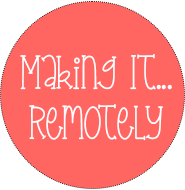A business model is defined as a design for the successful operation of your business. It's how your business works. This article will describe various models and why it's important to choose the right one for your business.
What is a Business Model?
A business model gives your business the structure that helps you generate income. It outlines possible revenue sources, your customer base, identifies products you'll promote, the way you can promote them and the methods used to compensate you.
Your business model provides a framework that outlines how you will make a profit. And it's much harder to have a successful business without structure and organization.
For that reason, it's important that you understand as much as possible about the model you choose.
How to Select a Business Model and Why It's Important
A Calculated Move
Business models have various features and benefits that work well (or not) with what you want to accomplish. It's important to perform an analysis to weed out the ones that are not a good fit.
So let’s take a look at the three key elements you should examine before making a selection:
- Revenue Sources - A business model helps you by identifying the different ways you can earn from your business.
This could include commissions from the sale of products, referral bonuses, or the services you provide.
These revenue sources can be something created by you or something offered by a company you partner with.
Download our PDF that shows several revenue sources for bloggers. Do any of these sources sound like a good fit for your business?
It's important to take a look at how you gather and process payments. Is it easy or hard for your customers to do business with you? The way you process payments will have a significant impact on your bottom line.
Your business model should detail how you will generate income as well as how often and in what format you will receive payments and any incentives or bonuses.
Let's Get Started!
Build Your Business Online.
Build Your Blog Today
- Products and Services - Your business model identifies the products and services your business plans to sell. Then it identifies each product’s target market or customer base.
Have you identified the target audience for each of your primary products? Who is your ideal customer, the person who would be the best fit for your products?
It's important to learn as much as possible about the people who will be the best fit for your products and services... your ideal customer.
Download our customer and product workbook bundle to gather information about building an audience that contains your ideal customer.
How much profit will you make (minus expenses) from each product?
Please note: If you're working with a company that has a huge product line, I would recommend performing the analysis in the workbook on the top 1 - 3 best selling products in your line.
If you're just starting and you don't have best sellers yet, choose three of your favorite products for the analysis so that the exercise is not overwhelming.
What is your strategy for selling each item in your product line?
What will make you different from all the other people who are selling the same products as you?
Those are a few of the questions you'll answer when you buy the customer and product workbook bundle. Click the image below to learn more.
- Expenses - Your business model gives you a framework that helps you identify anticipated expenses and weighs them against the money you earn from the sale of products and services.
For example, are there any upfront costs to get started? How much will it cost to run your business once you begin? Will you make enough profits to cover the cost of doing business? How long will it be, before you see a profit?
The Results of Your Analysis
When analyzing whether a business is a good fit, you should know how many units from each revenue source (products/services) you will need to sell each month to reach your financial goals.
Once you choose a model, it's time to create a marketing strategy for your business. Download our free worksheet to get started with your analysis.
Video: Business Model Training
This video is from our weekly training on our Facebook page and it covers how business models work.
It's the third in a series of videos on starting an online business. If you're just starting out join us each week to learn what you need to get started.
Click the button below the video to download the free resource discussed in the video. This resource helps you analyze any product or opportunity you are considering.
The Impact on Your Business
When a potential customer learns about your business, and they land on your website, in your shop, your YouTube channel, podcast, or even your brick and mortar business, they either like what they see or they don't. They have a choice to stay or go.
The way you execute your business model has a lot to do with whether visitors head for the hills, or they keep coming back and move toward becoming a customer.
Business Model Types
The Series: Getting Your Business Online
As we cover the details, I'll link to additional content.
The Decision is Yours
The challenging part of starting a new business is that most of companies (if you partner with a company) will point you to certain elements of your business. They will provide the products, a website, and terms of use, but they don't provide up to date, hands on training on how to build an audience.
Once you've figured out how to drive traffic and that traffic has arrived, it’s also up to you to motivate visitors to become customers. That’s where your business model can help you come up with success metrics.
Existing Business Owners
If you have a business, you have a business model that you’re using to earn. You’re providing a product or service and you have an existing customer base, use your current business model to expand. How you might ask.
Use your existing customers, the products you’re using in your business as well as products that complement your existing products. Use the power of the internet to grow your business with additional streams of income. No need to add employees or extra equipment.
For example, brick and mortar solopreneurs like salons, accountants, personal trainers, barbers, plumbers, consultants, and retailers can add to their business by using a video and/or podcasting platform to recommend products and services they use in their business.
You can accomplish this by becoming an affiliate, partnering with a direct to consumer company or adding eCommerce to their business.

Start ups
As a start up, you're not limited to one business model. At the same time, you don't want to be overwhelmed, which can happen when things get too big too fast.
The benefit of building your own brand and having an online home (platform) that you own and control is that you can add additional streams of income as you see fit.
For example, you might want to start your business by partnering with a with direct sales company.
Later, you might want to expand by becoming an affiliate of a different company, promoting products that compliment what you're currently doing in your direct sales company.
Maybe you have a background in sales and you care and enjoy helping customers (end users) with things they need. If so, you might do well with the direct sales model. This is a great model for those who love working face to face with people.
eCommerce is a great fit for businesses that have a website. If for example, you start as a network marketer with a products, it might be easy to add products to your branded site that compliments products you promote in your network marketing business.
If you join a direct sales/network marketing company like Avon or Mary Kay, you may get a company supplied website that you can use to earn your commission.
You can also use your branded website to connect with new customers, generate leads and distinguish yourself from others who are selling the same products as you.
If you’re good at driving traffic, you might become an affiliate and earn from making recommendations of products and services you love.
This isn't an all inclusive list of business models. Do your research and when starting out pick the one that works best for your needs and understand how it operates. Once you are comfortable with one model you can expand and layer on more models and streams of income.
Also keep in mind that you're not stuck with one solution and you can change as your business changes.
Take Our Free Course
Turn Your Product or Hobby Into an Amazing Online Business!









